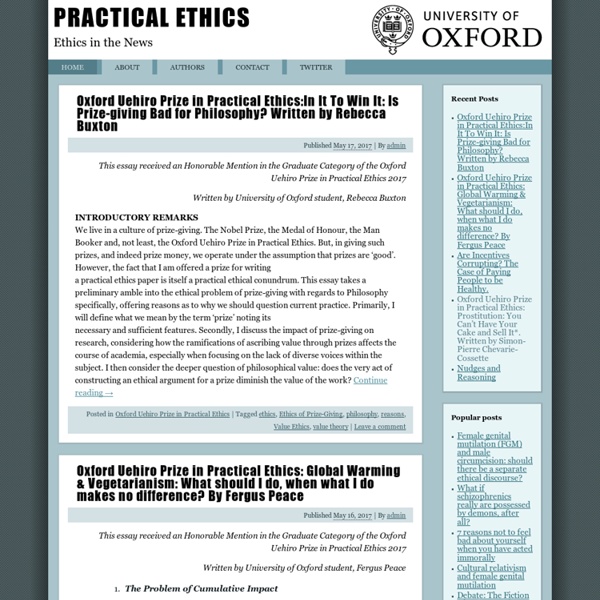



Welcome to Philosophical Investigations Philosophy association board reaches out to victims of sexual assault and harassment It’s hard these days to talk about women in philosophy without talking about sexual harassment and assault and sexism in general. Whether conditions for women in the discipline are actually worse than they are in the humanities overall is up for debate and likely impossible to quantify, but philosophy has attracted much criticism in recent years for what some have called a systemic discrimination problem. From accounts on the blogs What Is It Like to Be a Woman in Philosophy? In perhaps its strongest statement on the matter yet, the association’s Board of Officers is releasing later Tuesday morning a letter acknowledging the suffering experienced by victims of sexual assault and harassment. The letter addresses familiar complaints by some victims that their harassers have been less than adequately punished for their actions, taking a leave of absence or a new job. The letter also potentially puts harassers on watch. Mixed Reaction So how can an association board serve members?
giambattistavico About - The UPDirectory EpistemeLinks: For Philosophy Resources on the Internet Philosop-her Oscar Brenifier | Institut de Pratiques Philosophiques Ethics Etc PACTISS – Philosophers and Critical Thinkers in Senior Schools: Resources for Educators | You can upload and share your resources as well as download what you need
Part I: Spenser, Superheroes, and Ethics: Allegory in the 21st Century — Rock Ethics Institute I. “But why do you hate it?” The sophomore student and I sat together in my cramped cubicle in Burrowes building. The student looked at me, looked back at his book on the desk, then lowered his eyes and shrugged. We changed the subject and discussed his upcoming writing assignment in the British literature survey course, for which I was currently a TA. As we weighed thesis statements and supporting evidence, my question hung in the air like the smell of the tuna fish sandwich I’d eaten too early for it to technically qualify as lunch. I had asked him about The Faerie Queene by sixteenth-century English poet Edmund Spenser. It’s also widely, powerfully loathed by undergraduates, graduate students, and even many professors. Although my student elected not to expand on his shrugging response, others have articulated many reasons for their disdain of Spenser’s poem, dating back almost to the time of its initial publication. Still not sold on Spenser?
Philosophical Powers: Philosophy Action Figures Philosophical Powers has moved! Update your links to the 'new' URL: files.nyu.edu/iav202/public/powers/powers.html. I had a little extra time on my hands the summer after my first year as a graduate student in Indiana University's prestigious philosophy department, so I decided to take on a project that would blend two of my greatest interests--or rather, one of my petty distractions and my greatest interest, which are philosophy and toys, respectively. I remember seeing a poster once in the graduate student offices of the sociology department at the University of Arizona that featured jokes based on the juxtaposition of intellectual subject matter with a toy-advertisement format. Links: David Chalmers's Philosophical Humor page, probably the most comprehensive guide to philosophy humor on the web About.com entry on Philosophical Powers, which is listed under Atheism/Agnosticism, for some reason He-man.org Ever wonder how to teach an introduction to philosophy?
Explaining Blame and Forgiveness (by Featured Philosopher Miranda Fricker) I am pleased to introduce the next PEA Soup Featured Philosopher, Miranda Fricker. Profesor Fricker is currently the Director of the Mind Association, the author of the insightful and very influential book, Epistemic Injustice, and she is posting today about her next book project. Please feel free to add comments or questions below! Thanks for inviting me to contribute! I’d like to put forward one or two of the main lines of thought for a book project I’m working on—Explaining Blame and Forgiveness. Method: I’ve long been fascinated with State of Nature genealogical explanations of concepts or practices (the two contemporary inspirations being Edward Craig’s book Knowledge and the State of Nature, and Bernard Williams’ Truth and Truthfulness). Blame: I have argued elsewhere that the paradigm case of blame is Communicative Blame, where you wrong me and I react by communicating, with feeling, that you are at fault for what you’ve done.
Intro Gendlin, E.T. (1997). A process model. New York: The Focusing Institute. Recent articles by Gendlin not yet added to the Library Gendlin, E.T. (2013). Gendlin, E.T. (2013). Gendlin, E.T. (2012). Gendlin, E.T. (2012). Gendlin, E.T. (2012). Gendlin, E.T. (2012). Gendlin, E.T. (2009). Gendlin, E.T. (2009). Gendlin, E.T. (2009). Gendlin, E.T. (2008). Biographic Note Eugene T. Gendlin has been honored three times by the American Psychological Association for his development of Experiential Psychotherapy. What Does The Library Contain? The library contains an extensive collection of Gendlin's works ranging from 1950 to the present, including a number of unpublished articles. The Function of the Library The online library provides quick and easy access so anyone can learn about the Philosophy of the Implicit, Thinking at the Edge, Focusing, and Focusing-Oriented Psychotherapy, as well as applications of the philosophy in other areas. How to Navigate the Library Read the complete document